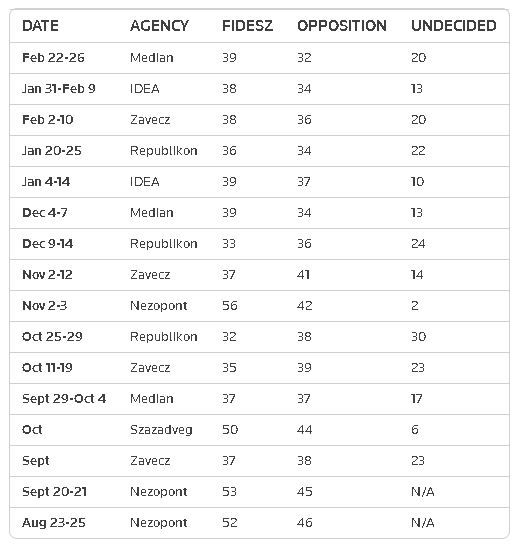
Orban's Fidesz widens lead ahead of opposition in late-Feb poll
The poll, conducted between Feb. 22 and 26, put support for nationalist Orban's Fidesz at 39% of the electorate, unchanged from December levels, while the opposition shed 2 points to 32%.
Orban, who has showered the electorate with tax cuts and other benefits worth 1.8 trillion forints ($5.23 billion), will on April 3 face a united opposition front for the first time since taking office in a 2010 election landslide.
The opposition alliance includes the Democratic Coalition, the Socialists, liberals and the formerly far-right, now centre-right, Jobbik. Its candidate for prime minister is Peter Marki-Zay, an independent who is currently mayor of Hodmezovasarhely, a town in southern Hungary.
The ranks of the undecided increased to 20% from 13% in December, which the survey said reflected uncertainty within the opposition camp and falling support for fringe parties, such as the far-right Our Homeland, or the Two-tailed Dog Party.
The survey said Orban's Fidesz had the strongest backing among older people, rural voters and the poor, while the opposition had larger reserves among young voters, urban populations and wealthier people.
With a little more than four weeks left until the ballot, another challenge for the opposition is a growing sense among the electorate that Orban is likely to get re-elected, with 67% expecting a Fidesz victory, up 4 points from December.
Only 45% of its own supporters see an opposition victory, the survey said, adding however that it could not yet gauge the impact of renewed falls in the forint to record lows and the escalating military conflict over the borders.

($1 = 344.2800 forints)











